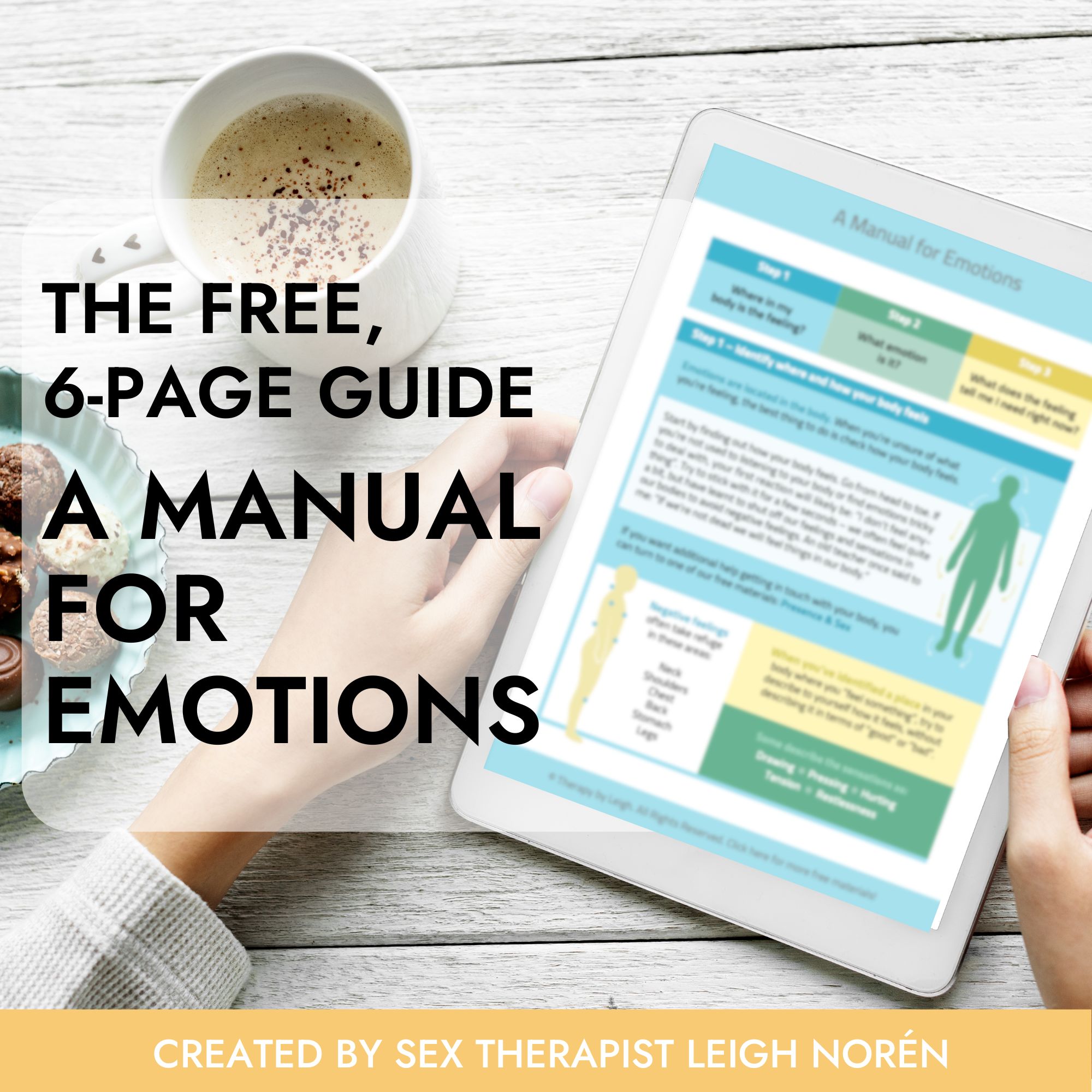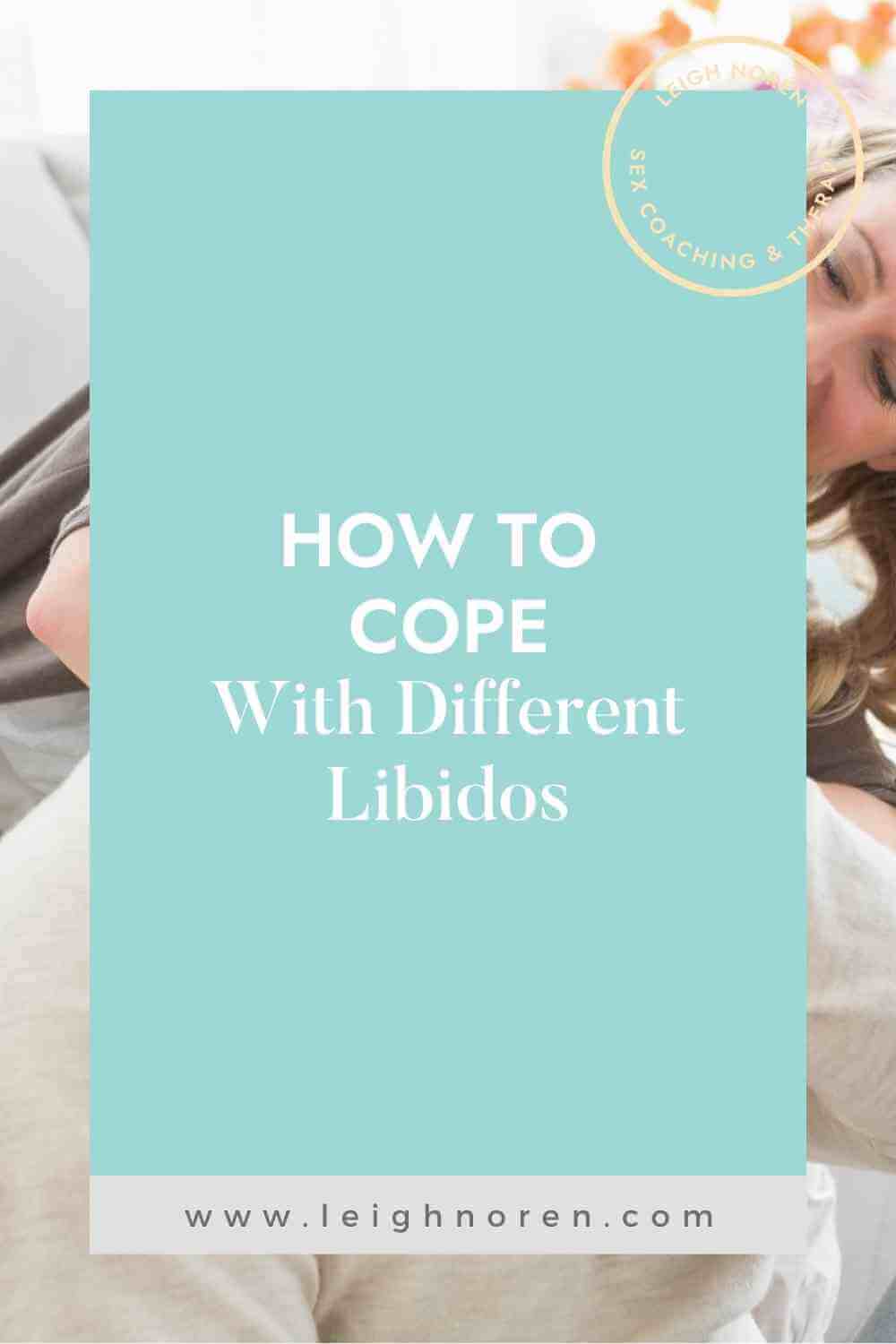Can Emotions Affect Sex Drive? Yes, And Here’s How.
Have you ever received bad news and all you’ve wanted to do was have sex? Or perhaps sex is literally the last thing you’ve wanted to do when you have anxiety? If you’ve ever asked yourself “can emotions affect sex drive” – this piece has got you covered.
As a sex therapist trained in affect-focused therapy, I know all about emotions, anxiety and sex and how and why they mix – or as it would happen – sometimes don’t.
What Emotions Are
Emotions are basic evolutionary processes that have developed to keep us alive. They act as compasses, telling us what our needs are in all situations.
In their rawest state, feelings have specific purposes. And if we listen to them and do what they’re telling us to do – we feel better.
Positive feelings usually urge us toward connection with others, whereas negative ones work to keep us safe.
Generally speaking, negative emotions such as worry and fear lead to low or no sex drive because their prime goal is to save us from potential threats. When something dangerous happens, like someone pointing a gun to our head, our body springs into action, creating the stress hormone cortisol, getting us read to fight, flee or freeze.
This is a good thing, because getting horny when someone wants to pop our head off, could potentially lead to our death.
The thing is though, worry and fear can also be ignited by things that aren’t actually dangerous – at least not on a physiological level. Stuff like:
-
our partner making an advance in bed,
-
a big presentation at work,
-
or an erection that suddenly falters; are all examples of situations our brain might perceive as a real threat.
If sex has turned into a stressful duty where we feel the need to perform by having a long-lasting erection or multiple orgasms – worry and fear inhibit our libido and sexual arousal.
So, can emotions affect sex drive? Most definitely. For most of us negative ones put a damper on our libido – which is why stress and sex usually aren’t a match made in heaven. For some though, worry, fear and anxiety can drive them toward sex – as opposed to away from it.
And this has a lot to do with their attachment pattern.
Your Attachment Pattern Affects Your Relationships
To understand why some people prefer to screw away their anxiety – you need to know what attachment is.
Attachment, just like our emotions, is a basic human drive, developed to ensure we bond with our babies and thus – take care of them.
Our attachment patterns differ, depending on the quality of the bond established with our primary caregivers.
The quality not only affects our relationship with our parents – it also governs how we relate to other people in the future – romantically or otherwise.
Roughly speaking, a secure attachment pattern leads to more balanced and healthy relationships, whereas an insecure attachment pattern leads to more issues in our relationships and, sometimes, more sexual problems, too.
One of the two insecure attachment patterns that can be developed in early childhood (and that can lead to a higher sex drive) is the anxious-preoccupied attachment pattern. This pattern emerges as a response to a home-environment with emotional inconsistency.
Perhaps our parents showered us with love and attention at random; sometimes meeting our emotional needs and other times minimizing or ignoring them.
When our primary caregivers are inconsistent and unpredictable we develop clinginess as a means of getting the love and attention we as a species so desperately crave.
As toddlers, this meant we needed to scream loudly in order to have our needs met, or cling to our parents bodies in order for them to hear us.
And so this pattern continues into adulthood.
We meet someone we fancy and we latch on quickly, clinging to them to receive confirmation and feel loved. One of the prime ways we receive this validation and affection – is through sex.
WANT TO UNDERSTAND YOUR FEELINGS AND THEIR CONNECTION TO SEX?

My free resource Manual For Emotions gives you the tools needed to understand the connection between sex and emotions and feel better.
Learn about the connection between sex and emotions and how to deal with difficult emotions in this 6-page long resource, and get free sex and relationship tips directly to your inbox. You can unsubscribe at any time.
How An Anxious-Ambivalent Attachment Pattern Can Increase Sex Drive
There are several reasons why an anxious-ambivalent attachment pattern can create a ferocious appetite for sex. One of them is that society holds sex in a relationship in high regard.
We equate sex with love and therefore, to have sex is to, literally, make love.
This pairing of sex and love is perhaps best seen in our western society’s quest for “the one” and our goal of life-long monogamy.
The whole concept of monogamy is that all of our wants and desires are replenished by this one person. It however also means if we’re not satisfied by our partner, or if we even desire another person sexually, there’s something wrong with us.
Because of the monogamous ideal and the way it links sex and love – sex serves as one of the ultimate ways of getting close and feeling cared for.
It can validate us and make us feel like we’re truly seen – no matter what attachment pattern we possess.
But especially for those of us who are anxious-ambivalent, sex can be the fastest route to feeling valued by our partner(s).
On the flip side, this means not having sex can be construed as a sign that our relationship is over or our partner has fallen out of love with us.
In order for this not to happen, our attachment pattern drives us toward a higher libido, trying to ensure our relationship’s survival. And in a more philosophical sense – our own.
By having sex with our partner we’re safe-guarding ourselves from being left on our own – the way we felt when our primary caregivers were emotionally inconsistent.
But our sex drive isn’t only sparked by society’s views of sex. It’s also ignited by the emotions and states that are triggered by our attachment pattern; worry and anxiety.
When we’re anxious-ambivalent, we might suffer more from regular worry and anxiety because relationships, in and of themselves, trigger it.
Sex can be a great way to regulate these negative emotions (as well as cuddling after sex, too).
The cortisol coursing through our veins doesn’t dampen our drive, as it does for most people who have a secure attachment pattern – it amps it.
Regulating emotions through sex doesn’t have be a negative thing. In fact, a lot of people, feel like it’s a great way of dealing with difficult feelings.
The problem arises when you feel the only way to relieve anxiety, stress or worry – is through sex.
Without any other strategies to regulate negative feelings, sex can turn into a compulsive act. Be it through masturbation or having sex with a partner or two.
Can Emotions Affect Sex Drive?
When asking yourself “can emotions affect sex drive?”, it’s important to take both feelings and attachment patterns into consideration.
Everyone’s libido is affected by their feelings – for those who have an anxious-ambivalent attachment pattern, sexual desire can be ramped up by negative emotions and for those who are securely attached, they shut it down.
If you feel like you’ve lost your libido and would like it back, the first step you need to take is to work out why it’s gone. This can be done by downloading my free resource, The Desire Test. Based on sexological science and my therapeutic experience, it helps you find out why you don’t desire sex and what can be done about it. Because there are likely more things in the mix than just your attachment pattern.

Zero sex drive?
You’re not alone! Download the 10-page Desire Test to find out why your desire for sex is gone (and what to do about it).
Questions based on a variety of factors proven to negatively affect desire
Find out which factors are responsible for your low or non-existent sex drive
Get instant access to expert advice, delivered directly to your inbox when you download The Desire Test. Unsubscribe anytime.
WANT TO KNOW MORE ABOUT THE DESIRE TEST?
With 9 years of experience as a sex therapist and coach - Leigh helps her clients create stress-free, shame-free, pressure-free sex lives, through her unique combination of sexological science, & psychotherapeutic & coaching tools.
OTHER POSTS YOU MIGHT ENJOY
Copyright © 2019-2026 Leigh Norén. All Rights Reserved. | Website by Pinegate Road
Cookie policy | Terms & Conditions | Privacy Policy


